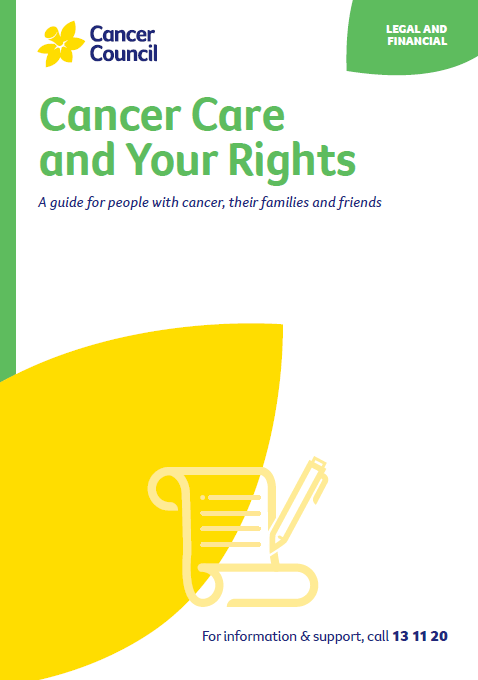- Home
- Pleural mesothelioma
- Making a claim
- Common law claim
Common law claim
A common law claim is brought against the party or parties (the people or organisations) who caused you to be exposed to asbestos. These are called the defendants.
Learn more about:
Making a claim
Starting a legal claim
A common law claim begins by filing a formal court document known as an “originating process”. The originating process must be lodged within your lifetime to protect your entitlement to compensation. This means that your estate will still be able to continue with your claim if you die before it is finalised.
Seeking legal advice
If you’d like to make a claim, it’s important to speak with a lawyer experienced in asbestos-related compensation claims as soon as possible after your diagnosis.
Legal support for those who are unwell
If you’re too unwell to see a lawyer in their office, they may be able to visit you at home or in hospital to discuss the process and how it can be simplified for you and your family.
Who can make a common law claim?
It may still be possible to bring a common law claim even if you:
- were exposed to asbestos many years ago
- no longer work for the employer where you were exposed
- have worked for many employers
- were self-employed or a contractor at the time of exposure
- worked for an employer who is no longer in business
- are, or were, a smoker
- were exposed to asbestos in another state or overseas
- were not exposed in the workplace
- were only briefly exposed to asbestos
- were exposed to asbestos on more than one occasion
- don’t know how you may have been exposed to asbestos.
How can I find a lawyer?
Use the “find a lawyer” search on your local law society website:
- NSW – The Law Society
- QLD – Queensland Law Society
- VIC – Law Institute of Victoria
- TAS – Law Society of Tasmania
- SA – Law Society of South Australia
- WA – Law Society of Western Australia
- NT – Law Society Northern Territory
- ACT – ACT Law Society
Mesothelioma legal claims are a specialised area. It’s important to talk to a lawyer or law firm experienced in this area, as they often have the appropriate information about how and where asbestos was used.
An experienced lawyer may reduce the time it takes to investigate a claim. They also understand what you are coping with and may work around medical appointments to try to make things less stressful for you.
The support organisations may also help you find a lawyer experienced in dealing with asbestos cases.
More resources
All updated content has been clinically reviewed by A/Prof Anthony Linton, Medical Oncologist, Concord Cancer Centre and Concord Repatriation General Hospital, NSW; Dr Naveed Alam, Thoracic Surgeon, St Vincent’s Private Hospital Melbourne and Monash Medical Centre, VIC; Prof David Morris, Peritonectomy Surgeon, St George Hospital and UNSW, NSW. This edition is based on the previous edition, which was reviewed by the following panel: A/Prof Anthony Linton (see above); Dr Naveed Alam, (see above); Donatella Arnoldo, Consumer; Polly Baldwin, 13 11 20 Consultant, Cancer Council SA; Dr Melvin (Wee Loong) Chin, Medical Oncologist, Sir Charles Gairdner Hospital and National Centre for Asbestos Related Diseases, WA; Prof Kwun Fong, Thoracic and Sleep Physician and Director, UQ Thoracic Research Centre, The Prince Charles Hospital, and Professor of Medicine, The University of Queensland, QLD; Vicki Hamilton OAM, Consumer and CEO, Asbestos Council of Victoria/ GARDS Inc., VIC; Dr Susan Harden, Radiation Oncologist, Peter MacCallum Cancer Centre, VIC; Penny Jacomos, Social Worker, Asbestos Diseases Society of South Australia, SA; Prof Brian Le, Director, Parkville Integrated Palliative Care Service, The Royal Melbourne Hospital and Peter MacCallum Cancer Centre, VIC; Lung Cancer Support Nurses, Lung Foundation Australia; Jocelyn McLean, Mesothelioma Support Coordinator, Asbestos Diseases Research Institute, NSW; Prof David Morris (see above); Joanne Oates, Registered Occupational Therapist, Expert Witness in Dust Diseases, and Director, Evaluate, NSW; Chris Sheppard and Adam Barlow, RMB Lawyers.
View the Cancer Council NSW editorial policy.
View all publications or call 13 11 20 for free printed copies.

